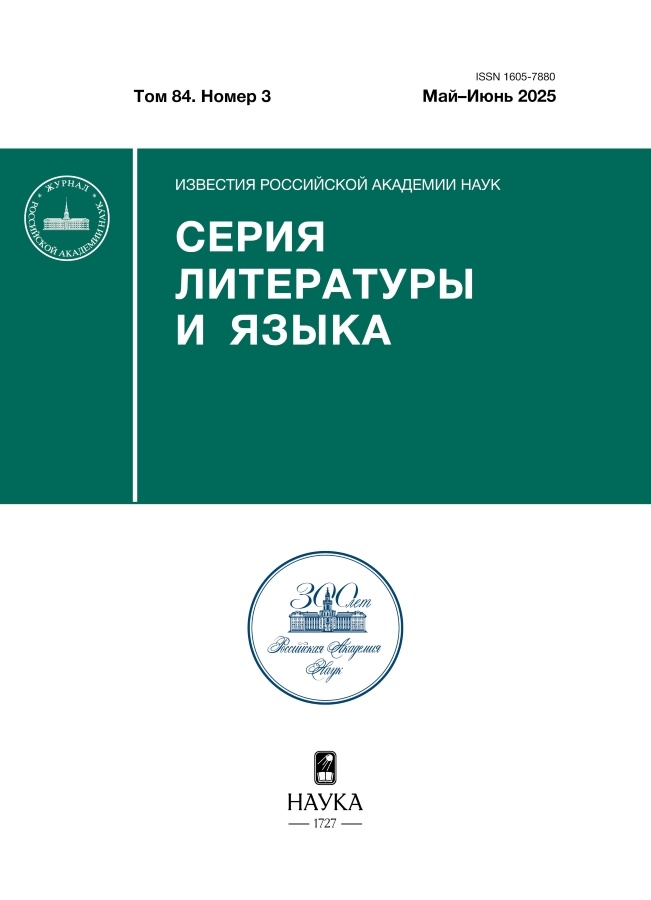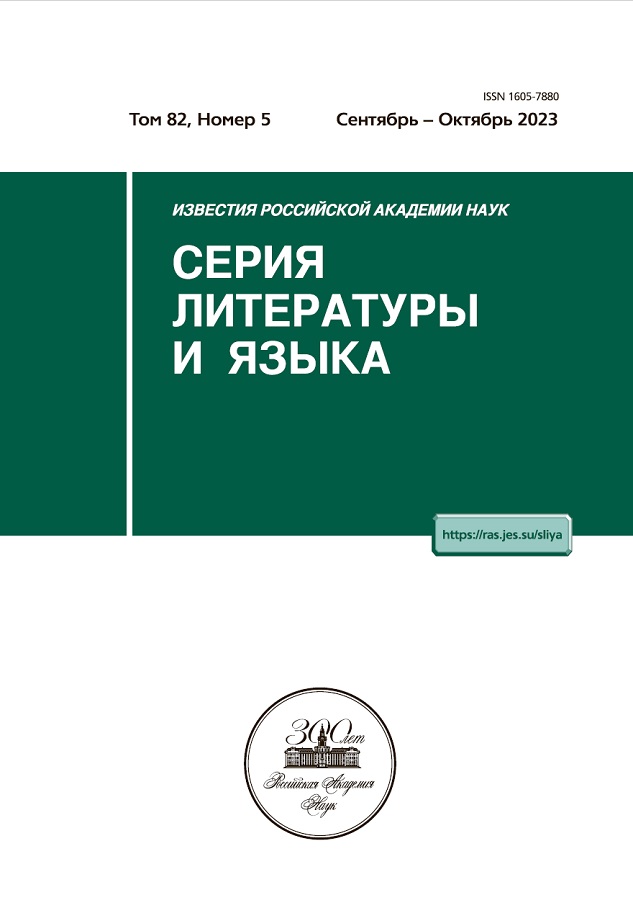Том 82, № 5 (2023)
“Падение Парижа” как “конец модернизма”: эсхатология, война и Илья Эренбург в анфиладе культурных зеркал
Аннотация
 5-14
5-14


О стихотворении Осипа Мандельштама “На влажный камень возведенный…” (1909)
Аннотация
 15-21
15-21


Внутриязыковые страты в межъязыковом контакте (на материале русского языка диаспоры в Германии)
Аннотация
 22-36
22-36


О теоретических и эмпирических терминах
Аннотация
 37-48
37-48


Д. С. Мережковский. Какая будет радость [1916] Публ., вступ. заметка, подг. текста и примеч. Е. А. Андрущенко
Аннотация
 49-57
49-57


Сергей Дурылин о Шекспире в русском театре: к вопросу о модальностях театрально-критического письма в СССР в 1930–1950-е годы
Аннотация
 58-67
58-67


Неосуществленный литературно-издательский проект М. Горького “История Горьковского края”
Аннотация
 68-77
68-77


Переосмысление поэзии Браунингов на страницах неовикторианских романов
Аннотация
 78-86
78-86


Нормативность в системе фундаментальных категорий толковой лексикографии: к проблеме типологии словарей
Аннотация
В статье рассматривается система фундаментальных категорий толковой лексикографии, среди которых центральное место занимает категория нормативности. С опорой на классические работы по теории лексикографии и с учетом достижений современного языкознания выявляется сущностная специфика нормативного толкового словаря. Категория нормативности анализируется с точки зрения системно-лингвистического, функционального, социального и исторического аспектов, рассматривается в связи с проблемой системного отражения в толковом словаре нормы литературного языка. На основе предложенного понимания нормативности выстраивается система антиномий толковой лексикографии и описываются типы фундаментальных толковых словарей русского языка, которые могут быть реализованы в современных технологических условиях.
 87-108
87-108


Роль документальных источников в комментировании романа А. Н. Толстого “Петр Первыи”
Аннотация
 109-114
109-114


Рецензии
 115-117
115-117


Хроника конференции
 118-125
118-125













